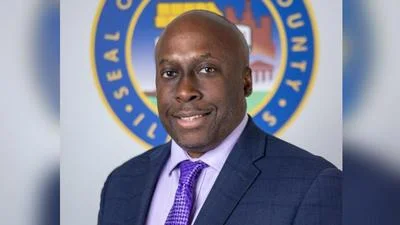Rep. Rodney Davis | File Photo
Rep. Rodney Davis | File Photo
U.S. Rep. Rodney Davis' (R-Champaign) Opioid Prescription Verification Act recently passed the U.S. House of Representatives.
The bill gives states incentives for facilitating responsible dispensing of controlled substances. It also lays out the reasons why a pharmacist may refuse to fill a prescription.
“Overdose deaths have accelerated during the COVID-19 pandemic, which has made it even more critical than ever that law enforcement and health officials have the tools they need to combat drug abuse, including opioid abuse,” Davis posted on his website. “The Opioid Prescription Verification Act, inspired by a meeting I had with the Normal Police Department a few years ago, would better train pharmacists to verify identities to prevent pharmacy shopping, deter individuals from pharmacy shopping for prescriptions, and encourage the full use of electronic prescription drug monitoring programs."
Davis believes his bill will make it easier to track prescriptions.
“My bill will ultimately help doctors and pharmacists track the prescriptions a patient has received and ensure they cannot be altered or copied and used multiple times in an illicit manner," Davis said. "We need to do more to combat this terrible opioid crisis, and H.R. 2355 will help do just that, saving lives in the process.”
This new bill is intended to build on the Support for Patients and Communities Act, which was signed in 2018. Originally the bill was planned to mandate policies similar to the ID checks that already exist for Sudafed-type drugs. This was changed during the markup process to increasing the amount of electronic prescriptions.
The U.S. Department of Health and Human Services believes that electronic prescriptions are "one of the most promising tools available to address prescription opioid misuse and abuse.” Another measure taken in the bill is to mandate that the U.S. Department of Health and Human Services collaborate with the CDC, FDA and DEA to offer guidance and materials that will help pharmacists confirm the identity of patients seeking drugs.
HR 2355, or the Opioid Prescription Verification Act, passed the U.S. House of Representatives in a vote of 410-15. The 15 nays were from Republican representatives. Eight did not vote, including Rep. Adam Kinzinger (R-Ottawa).






 Alerts Sign-up
Alerts Sign-up